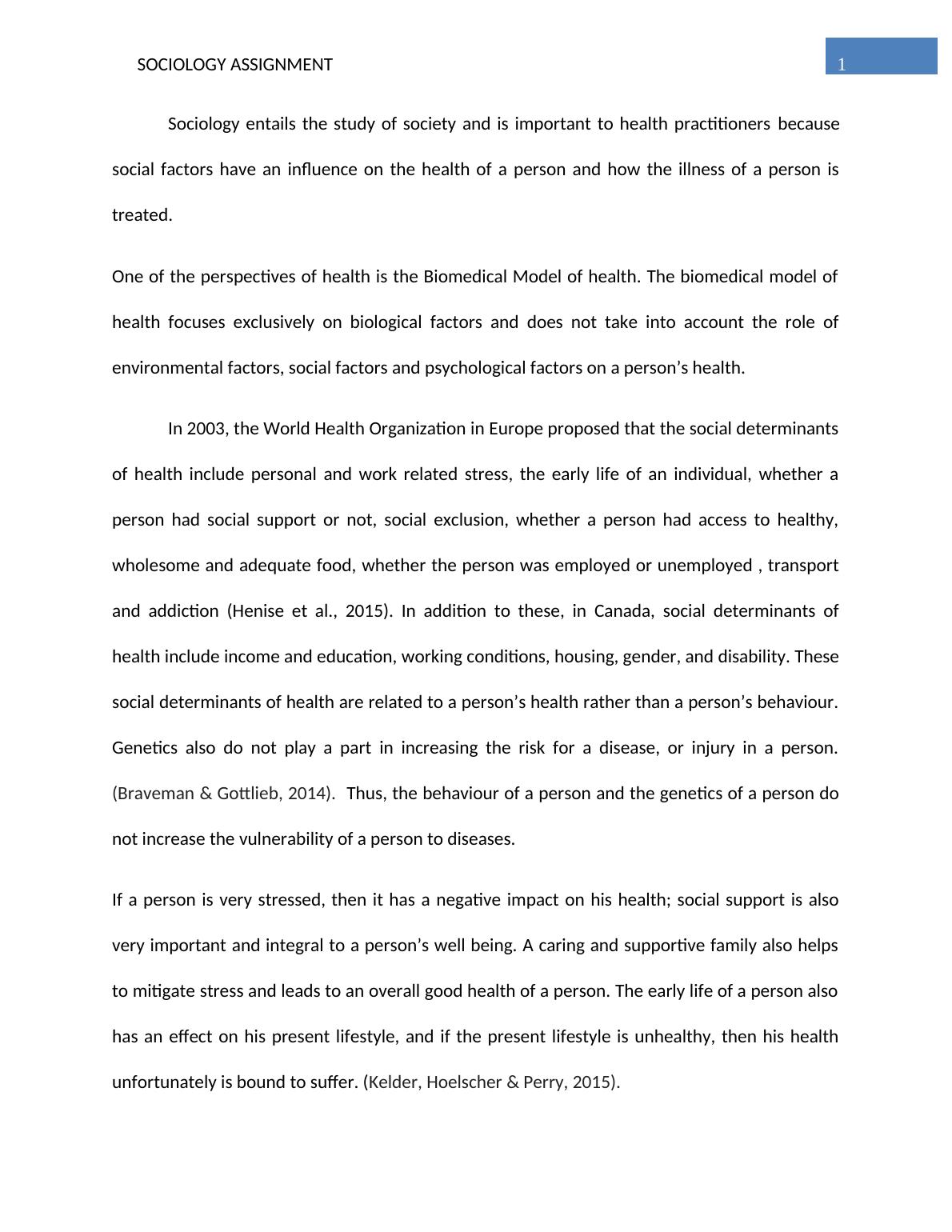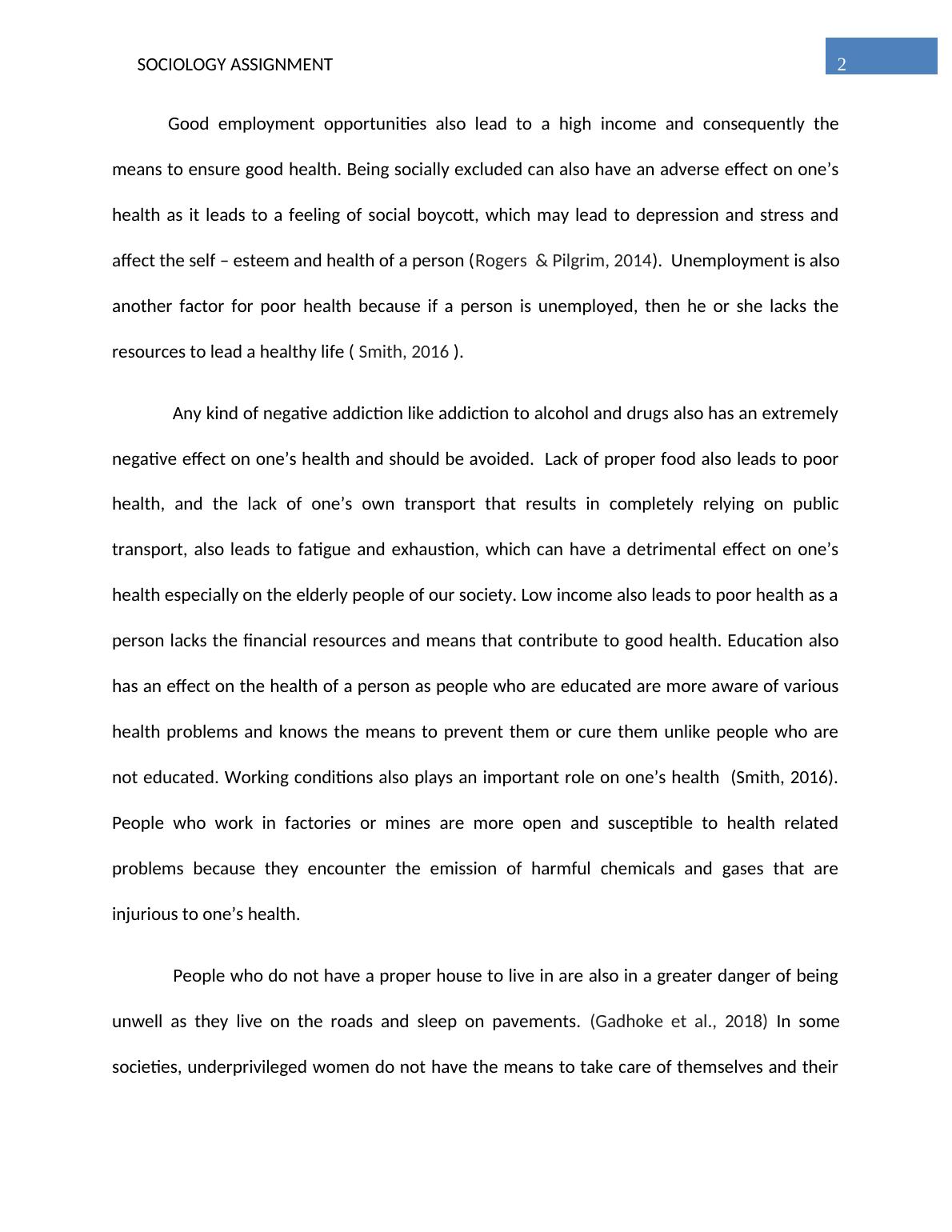The Importance of Sociology in Understanding Social Determinants of Health
This assignment is an opportunity to tell an Indigenous individual’s health journey on a specific Indigenous health issue(s) and it can be (1) from a personal or professional perspective or (2) about someone from the public domain.
10 Pages2413 Words317 Views
Added on 2023-06-09
About This Document
This article discusses the importance of sociology in understanding social determinants of health and their impact on individuals. It explores the Salutogenic model and Marxist perspective of health and illness. The article also highlights the role of factors such as income, education, working conditions, housing, gender, and disability in determining a person's health. It emphasizes the need for society to ensure that everyone has access to basic necessities such as food, clothing, shelter, education, job opportunities, and healthcare to mitigate poverty and diseases.
The Importance of Sociology in Understanding Social Determinants of Health
This assignment is an opportunity to tell an Indigenous individual’s health journey on a specific Indigenous health issue(s) and it can be (1) from a personal or professional perspective or (2) about someone from the public domain.
Added on 2023-06-09
ShareRelated Documents
End of preview
Want to access all the pages? Upload your documents or become a member.
Indigenous Health and Culture
|6
|1572
|286
Consequences of the Biomedical Model for Understanding Health and Illness in Australia
|8
|2483
|26
How Unemployment Affects People Living below Poverty Line in Australia
|14
|4109
|28
Poverty and Income/Wealth Inequality
|9
|2156
|356
Sociological Approaches to Social Determinants of Health
|6
|1842
|74
The Social Determinants of Health - Report
|6
|1818
|304



